Personal Care & Household Cleaning Personal Care & Household Cleaning,Body Brush,Toilet Cleaning Brush,Massager Hair Brush DONGGUAN BILLION GOODTOP INDUSTRIAL CO., LTD , https://www.bgoodtop.com
Chuan Bran Biological Laboratory Construction Solution
**Learning and Searching: A New Teaching Model of "Datong Ecology" at Beijing No. 24 Middle School**
**I. Concept and Innovation**
Life science plays a significant role in shaping human culture, ethical values, and the social economy. Integrating life sciences into basic education not only helps develop scientific literacy but also allows students to appreciate the beauty and value of life through exploration. This fosters respect, fear, and love for life.
Science thrives on experimentation, and the combination of practicality and applicability has led to the creation of the biological laboratory. The Beijing No. 24 Middle School Biological Laboratory, supported by the professional expertise of Chuan Bran, draws inspiration from undergraduate biology courses in curriculum and experimental design. It offers a flexible learning environment that encourages diverse learning methods, enhances students’ multi-dimensional thinking, and strengthens their analytical and innovative abilities. This approach breaks away from the traditional model where teachers conduct experiments while students just observe, instead empowering students with real-world skills and laying a solid foundation for future talent development in higher education.
**II. Infrastructure Development**
The construction of the Beijing No. 24 Middle School Biological Laboratory is a comprehensive project, named the “Datong Biological Practice Base.†It includes a biotechnology lab, a plant tissue culture lab, the Datong Ecological Park, and a specimen exhibition hall.
**1. Biotechnology Laboratory**
This lab goes beyond traditional setups by offering more space for both teachers and students, facilitating group work and teacher guidance. The side tables are designed to optimally place essential instruments. Equipped with advanced tools such as PCR machines, DNA and protein electrophoresis systems, high-speed refrigerated centrifuges, and low-speed automatic balance centrifuges, this lab supports a wide range of in-class and extracurricular experiments, promoting hands-on learning and innovation.
**Figure 1: Biotechnology Laboratory**
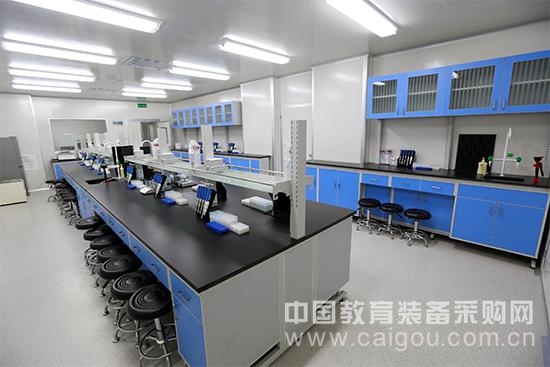
**Figure 2: Experimental Preparation Room**
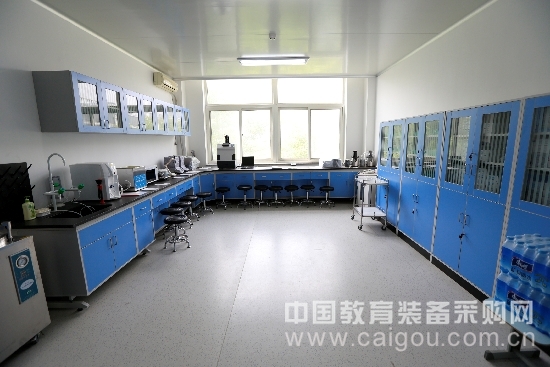
**2. Plant Tissue Culture Laboratory**
This lab is a highlight of Beijing No. 24 Middle School. Since its establishment, it has served as a seedling supply base for the Datong Ecological Park and a platform for students to explore and expand their capabilities. The successful operation of two plant tissue culture competitions highlights its importance. Students often give handmade plants to teachers during festivals, strengthening the bond between them.
Equipped with vertical high-pressure steam sterilizers, ultra-clean workbenches, electronic balances, light culture frames, and intelligent plant culture systems, this lab enables students to master plant tissue culture techniques, understand the value of innovation, and develop teamwork skills.
**Figure 3: Tissue Clean Room**
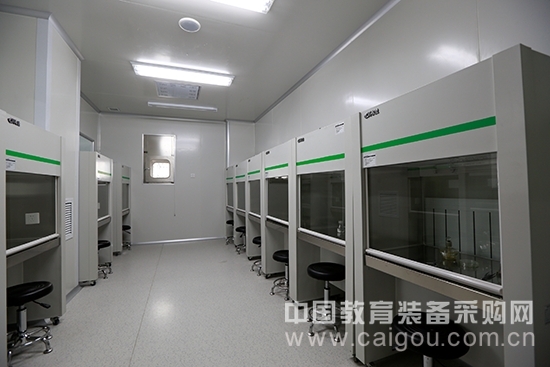
**Figure 4: Plant Cultivation Room**
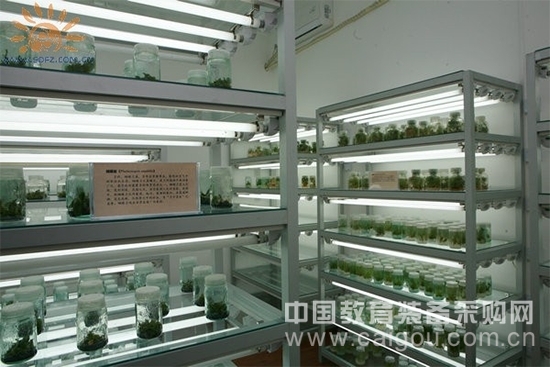
**Figure 5: Refinery Room**
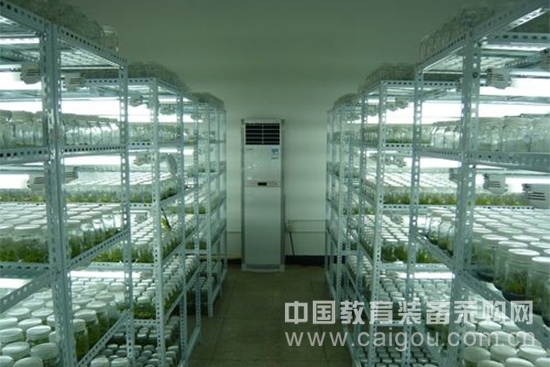
**3. Datong Ecological Park**
This ecological space redefines traditional labs by creating a safe, controllable, and fully operational environment. It includes modules such as environmental control, soilless cultivation, plant tissue culture, and insect and aquatic animal culture. Designed to reflect modern and innovative lab concepts, it addresses school operational concerns and supports the goal of cultivating practical, innovative talents.
Officially completed in 2013, the Datong Ecological Park was recognized as an external demonstration base by the Chinese Academy of Agricultural Sciences. It serves as both a plant breeding center and a student research hub.
**Figure 6: Specimen Exhibition**
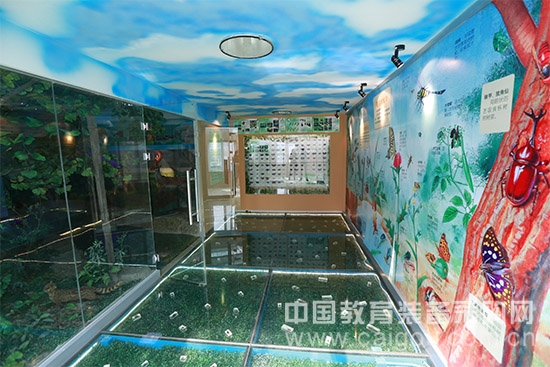
**Figure 7: Specimen Exhibition Hall**
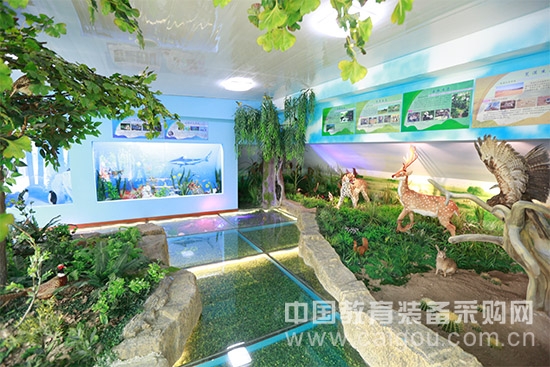
**Figure 8: Plant Soilless Cultivation**
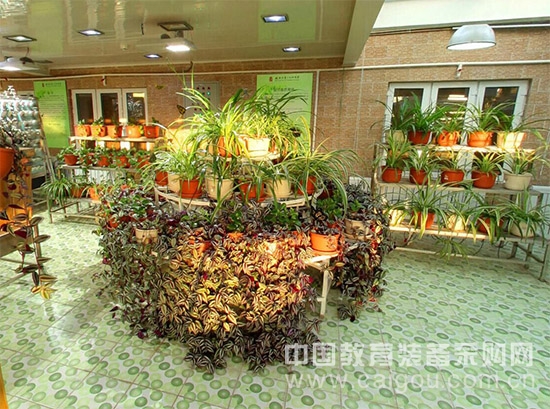
**Figure 9: Students Performing Seeding Operations**
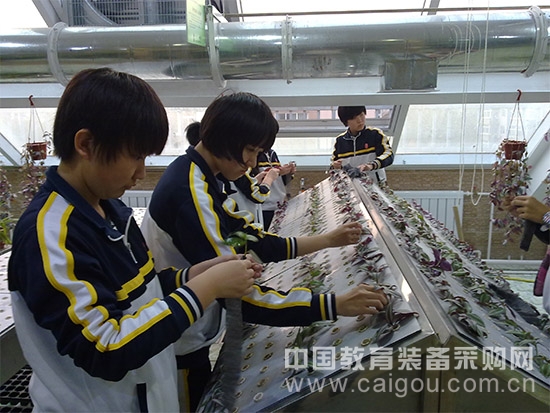
**Curriculum Design**
Beyond daily teaching, the Datong Biological Practice Base allows students to grow vegetables and fruits, gaining hands-on experience with plant growth, nutrient absorption, and ecosystem dynamics.
**1. Biotechnology Lab Courses**
Courses include extended topics like “Transgenic Plant Cultivation†and “Safety Testing of Daily Food Ingredients,†keeping students updated on the latest developments in life sciences and fostering their interest in scientific innovation.
**Table 1: Biotechnology Laboratory Course**
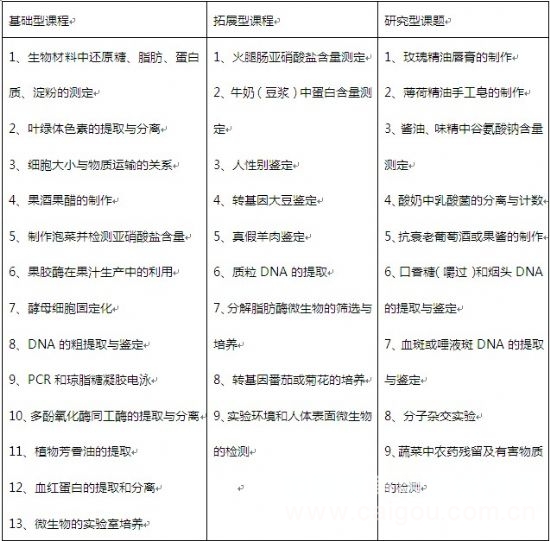
**2. Plant Tissue Culture Lab Courses**
Objectives include mastering plant tissue culture concepts, applying them in real life, practicing basic operations, and developing a love for nature.
**Table 2: Plant Tissue Culture Laboratory Course**
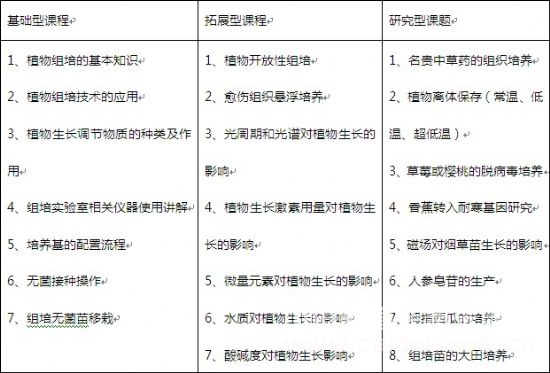
**3. Biological Garden Courses**
This module features a multi-module, indoor simulation ecosystem that brings nature to the campus. Its curriculum is diverse and flexible, allowing students to explore various aspects of biology.
**Table 3: Biological Garden Course**
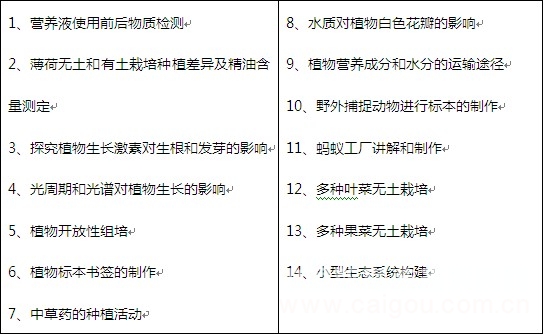
**Innovation Practice Activities**
After introducing students to life sciences, the focus shifts to helping them apply biotechnology in real-world activities. Based on skill level, grade, time, and resources, students can engage in various research projects.
**1. Popularization Class**
All students participate in weekly lab sessions. Teachers demonstrate, students perform experiments, and each activity is documented in a report. Evaluation considers participation, emotional growth, and attitude development.
**2. Improvement Class**
Selected students receive advanced training, deepening their understanding of life sciences and enhancing their innovative thinking.
**3. Innovation Class**
Students who pursue independent research use classroom time, weekends, and holidays to conduct studies under teacher guidance, and may consult university experts when needed.
This model ensures that students not only learn but also grow, preparing them for future challenges in science and beyond.